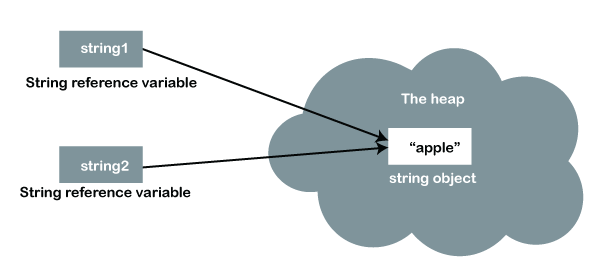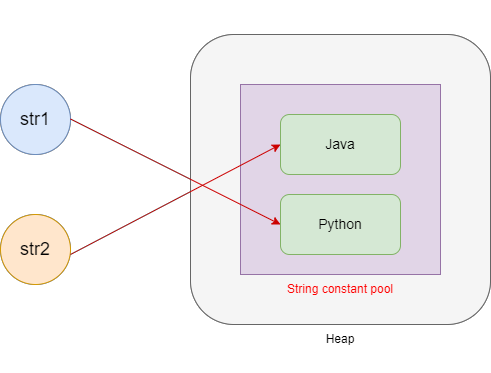Why Are Strings Immutable in Java? Comprehensive Overview for Beginners
Why Are Strings Immutable in Java? Comprehensive Overview for Beginners
Blog Article
What Is Unalterable Strings and Just How It Functions
In the realm of programming, comprehending the concept of unalterable strings is critical for developing durable and protected applications. Unalterable strings refer to strings that can not be changed after they are produced, guaranteeing data honesty and predictability within the code.
The Fundamentals of Immutable Strings
Immutable strings, as an essential concept in programs, are personality sequences that can not be altered once they are created. This indicates that once a string is appointed a worth, that value can not be modified. In languages like Python and Java, strings are unalterable objects, bring about different implications in regards to memory administration and information stability.
Among the essential benefits of immutable strings is that they offer a sense of protection in data manipulation. Because the content of an unalterable string can not be modified, it makes sure that the original data remains undamaged, decreasing the risk of unplanned adjustments during program execution (Why are strings immutable in Java?). This home likewise streamlines debugging procedures, as programmers can trust that when a string is specified, its worth will certainly not be accidentally modified
When a brand-new string is produced based on an existing one, instead than customizing the original string, the new worth is stored individually. Overall, understanding the basics of immutable strings is vital for mastering programs ideas and enhancing code efficiency.
Benefits of Immutable Strings
Building upon the security and performance advantages of immutable strings, their benefits include improving code reliability and streamlining concurrent programming tasks. By being immutable, strings can not be changed after development, which gets rid of the threat of unintentional modifications in the data they save. This fundamental immutability ensures that once a string is developed, its value stays consistent throughout the program's execution, reducing the possibilities of bugs triggered by unexpected modifications.
Furthermore, unalterable strings add to code integrity by making it less complicated to reason regarding the state of a program. Because strings can not be altered, designers can rely on that a string will certainly always hold the exact same worth, streamlining debugging and maintenance initiatives. This predictability causes a lot more dependable and steady codebases.

Execution in Programming Languages
Within numerous programming languages, the incorporation of immutable strings is a basic element that impacts exactly how information is managed and manipulated within code frameworks. The application of unalterable strings varies across different shows languages, with each language offering its very own systems to support this concept.

On the other hand, languages like C and C++ do not have built-in support for immutable strings. Designers in these languages have to by hand apply immutability by applying regulations within their code to stop straight alterations to string objects.
Ideal Practices for Functioning With Unalterable Strings
When dealing with immutable strings in shows languages like Java and Python, adhering to ideal practices ensures secure and reliable data adjustment. Among the essential finest methods is to use StringBuilder or see StringBuffer as opposed to directly adjusting strings, particularly when handling extensive concatenation operations. These classes offer mutable options for string manipulation, aiding to avoid unneeded memory allocations and improving efficiency.
Additionally, when functioning with delicate information such as passwords or API keys, it is critical to stay clear of saving them as ordinary message in immutable strings. Utilizing secure storage space devices like char ranges or specialized libraries for handling sensitive information helps minimize security risks connected with immutable strings.
Real-world Applications and Instances
Checking out sensible applications of immutable strings in numerous markets discloses their considerable impact on information integrity and system integrity. In the healthcare sector, unalterable strings play a critical role in making certain the safety and security and discretion of patient information. By preventing unauthorized adjustments to sensitive info such as clinical why not try this out records and prescriptions, immutable strings aid preserve compliance with rigorous personal privacy regulations like HIPAA.
Banks also gain from the immutable nature of strings to improve the safety of client data and purchase records. Immutable strings assist avoid fraud and unapproved modifications to financial info, supplying a durable defense against cyber dangers and ensuring the count on and confidence of clients.

Final Thought
Ideal techniques for functioning with unalterable strings include staying clear of straight modifications and using approaches that return brand-new string things. Real-world applications of immutable strings include information encryption, caching, and string manipulation tasks.
Immutable strings refer to strings that can not be modified after they are created, making sure information stability and predictability within the code. When a new string is developed based on an existing one, instead than changing the initial string, the new worth is kept individually.In languages like Java and Python, strings are unalterable by default, implying that once a string things is produced, its worth can not be changed - Why are strings immutable in Java?. Best methods for working with immutable strings consist of avoiding direct modifications and making use of techniques that return brand-new string items. Real-world applications of unalterable strings include information security, caching, and string control tasks
Report this page